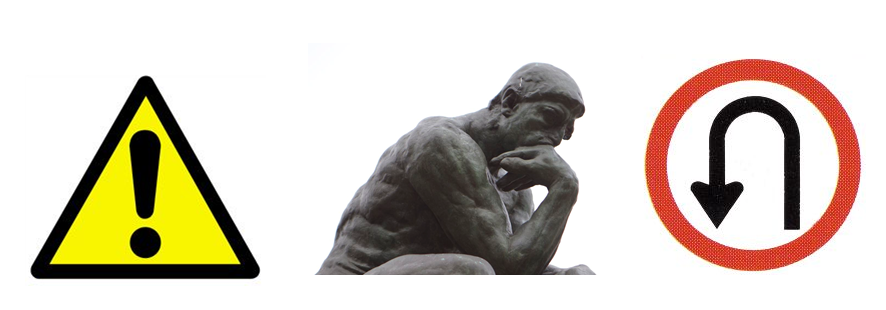|
To any sentient being, I think the most important thing is to doubt yourself. No matter how sure you are of yourself, you must always bear in mind that you can be wrong. In fact, you have been wrong on many (most?) occasions, and you will be wrong for many times to come. This is a serious and crucial realization, because most of our actions arise from our conscious and unconscious beliefs. Our horizons are bounded. The thoughts and opinions we can have are limited by our cultural experience (e.g. socially accepted norms). Our confidence in our beliefs is bolstered by the fact that we can only operate inside our tiny little box, which makes everything in the box so familiar and comfy and, you know, "obviously true". However, to make good decisions in life, we must accumulate much "experience" to guide us. That "data" comes in the form of a diverse array of opinions and beliefs, which may not agree with each other. We must expand our shoebox of a mind to a warehouse of different perspectives which allow us to appreciate things and happenings more completely. This will aid our decision-making process by allowing us to evaluate the consequences of choices more accurately. Hence, to grow as a person, we should:
0 Comments
Is it possible to do mathematics WITHOUT background knowledge?... Is it humanly possible to do mathematics on own without research or is the information content too much to discover identities, or methods of proofs on one's own?... But, how to get started then? How to discover mathematics on my own? I wouldn't say that I've been "discovering mathematics", but I definitely have been playing around with many of my original math research ideas, some of which I am happy with. So I introspected a little about my amateur math explorations and how my experience can help people who ask this question. Here is my slightly edited response.
I'm completely unfamiliar with art, but I've had this interesting thought lately. First of all, Art is more than the sum of its parts. (Statement 1) There are many ways how an art piece can be more than its constituents. The visual arts give a few easy examples, where emotion can be injected into a medium (the "sum of its parts"). The emotion, message, or whatever special qualities that qualify something as art, was not present in the medium itself, yet it present in its final form.
|
Archives
December 2020
Categories
All
|



 RSS Feed
RSS Feed